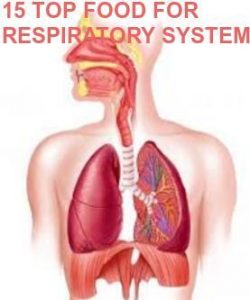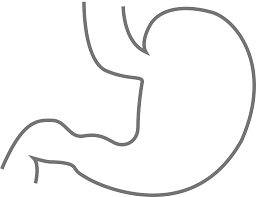GUT FUNCTION
In human anatomy, the intestine (bowel, or gut.) is the segment of the gastrointestinal tract extending from stomach to the anus. Gut function are inextricably linked to our overall health and wellbeing
The gut is key core disease-fighting systems of the human body.
First, the acid and enzymes in the gut exert to sterilize our food and, in this way, shield the body from illness and infection.
Secondly, the digestive tract is an important source of immune function in the body.
Gut is Home to 100 trillion microorganisms, the gut’s primary function is the digestion, absorption of nutrients and the excretion of waste.
HOW GUT HEALTH AFFECTS YOUR WHOLE BODY:
You have many bacteria in your body. In fact, you have more of them than you have cells and Most are good for you. The ones found in your gut not only help you digest foods, they work all over your body and are also good for your physical and mental health.
This is home base for the bacteria in your digestive tract. Gut help you break down food and turn nutrients into things your body can use. Bacteria stops growing when they run out of food.
In the gut microbiome (good bacteria) does lot more than just aid to digestion. They also keep check for bad bacteria. Good bacteria maintain equilibrium by not allowing bad bacteria to grow. For good health, it is best to have a diversity of bacteria in your gut. This can be achieved by your diet and other lifestyle factors.
Medical experts have found that the brain directly communicates with the gut and bacteria and viruse that line your stomach and intestines. The bacteria are in constant communication with your brain, affecting everything from your mood, emotions, sleep, metabolism and health.
During food digestion, these bacteria make vitamins and send signals to the immune system. If your gut are not functioning properly, they also send signals to your brain, which can affect your mood and other aspects of your health.
As per experts an unhealthy gut or one that is out of balance can increase your risk for obesity and illnesses like diabetes, and can play a small role in depression.
A well balanced diet like fiber, Green vegetables as well as omega 3 fatty acid can help to promote gut health.
Red meats, carbohydrates and high fat foods should be minimized for better gut health.
5 SIGNS OF UNHEALTHY GUT/INTESTINE:
Many aspects of modern metro’s life like high stress, little sleep, high sugar foods, use of antibiotics can all damage our gut health. Gut health further affects our brain, heart, immune system, hormone levels, skin, weight and other body problems.
There are a number of ways an unhealthy intestine might clear itself. Key five signs are:
- CONSISTENT STOMACH ISSUES:
Stomach issues like gas, bloating, constipation, diarrhea, and heartburn are all be signs of an unhealthy gut. A balanced gut will have less difficulty in digesting the food and eliminating waste.
2. CONSTANT FATIGUE/SLEEP DISTURBANCE/LACK OF ENERY:
An unhealthy gut also contribute to sleep disturbances such as insomnia or poor sleep, and therefore lead to chronic fatigue. The majority of the body’s serotonin also called brain neurotransmitter, a hormone that affects mood and sleep, 90% is produced in the gut. Damaged gut may also disturb your sleep severely.
3. INCREASE SUGAR CRAVING:
A diet high in added sugars can decrease the amount of good bacteria in your gut.
This may further increase your sugar cravings that can further damage your intestine.
4. WEAK IMMUNE SYSTEM:
An Unhealthy gut further weak down human immune system and disturbs proper functioning of immune system. This can lead to type of diseases where body attacks to itself rather than attaching bad bacteria.
5. FOOD INTOLERANCE:
Key reason for food intolerance is weak digestive system. Poor bacteria in the gut can also lead to food intolerance. This can lead to difficulty in digesting the trigger foods and unpleasant symptoms such as bloating, gas, diarrhea, nausea, abdominal pain.
5 WAYS TO IMPROVE GUT/INTESTINE HEALTH:
- INCREASE INTAKE OF PROBIOTIC FOOD:
Probiotic support healthy body systems from your mouth to your gut, and also helps to control harmful microorganisms like germs. Prebiotics food promote the growth of beneficial bacteria in the gut, while probiotics are live good bacteria. Probiotics aid digestion and improve nutrient absorption. Probiotics occur naturally in fermented foods and cultured milk, but you can also find manufactured probiotic supplements from surrounding market.
2. STAY ACTIVE STAY RELAXD:
Exercising increases blood flow towards the muscles and digestive tract, which helps to move food through the digestive tract. Exercise has also been shown to alleviate heartburn, gas, stomach cramps and constipation
Exercise makes bowel movement regular.
Exercise releases sodium through sweating, which can help to relieve water retention.
Stress puts a great deal of pressure on your stomach and abdomen, and upsets hormone and neurotransmitter balance. Stress can create an environment where foods that could normally be digested easily end up being digested poorly, leading to the creation of gas and bloating.
Stay relaxed Stay active through different Exercises, Mediation techniques, Yog Nidra, Breathing exercises, Laughing Yoga etc.
3. STAY HYDRATED:
Drink plenty of water to keep your gut healthy. Drinking plenty of water balances good bacteria in the gut. Staying hydrated is one of simple way to promote a healthy.
It is important to drink lot of water during exercise to stay hydrated.
4. GET ENOUGH SLEEP:
The health of your gut may be linked to mental health, and mental health is linked to sleep. It’s a complex intersection, but if want to take care your gut, go for good sleep and improve your mood an mental stage.
Not getting enough or sufficient sleep can have serious impacts on your gut health, which can in turn contribute to more sleep issues. Try for 8 hours un-interrupted sleep for gut health.
5. EAT SLOWLY, EAT AT REGULAR INTERVAL:
Eat your meal slowly and chewing thoroughly. Eating meal slowly helps for full digestion and absorption of nutrients.
Also eat meal at regular interval.
Key reason for bloating, Gas is weak unhealthy gut or digestion system. Many people experience bloating after heavy meal. So it is recommended not to eat heavy and eat several smaller meals in multiple times. It is one of best way to keep digestive system active every time and feeling of full.
People having bloating issue should avoid straw as straw lead to people swallow more air, which in turn create gas and bloating.
FOOD FOR BETTER GUT/INTESTINE HEALTH.
Diet and gut health are very closely linked. Processed foods, foods with refined sugar content and high-fat foods are important for maintaining a healthy gut, as these diets destroy good bacteria and promote growth of damaging bacteria.
Let us discuss here key foods that actively promote the growth of good bacteria:
1. HIGH FIBER FOODS:
Probiotics aids to keep your gut healthy by feeding your good gut bacteria. Gut bacteria love to treat with fiber.
High-fiber foods such as oats, bananas, berries, asparagus, legumes, beans, peas and leeks have good impact on gut health.
2. GARLIC AND ONION:
Garlic and Onion promotes the growth of good bacteria in the gut, and prevents disease-promoting bacteria from growing at the same time
Garlic and onion have anti-cancer and immune system-enhancing properties according to various studies that are tied to key function of gut.
3. Fermented foods
Fermented foods also help to grow good bacteria in the gut and prevents disease promoting bacteria in the gut.
Fermented foods such as tempeh, miso, kimchi, sauerkraut, yogurt, and kefir are great dietary sources of probiotics.






Very good information
Good Topic
thanks
Unique Detail
Thanks
Good information